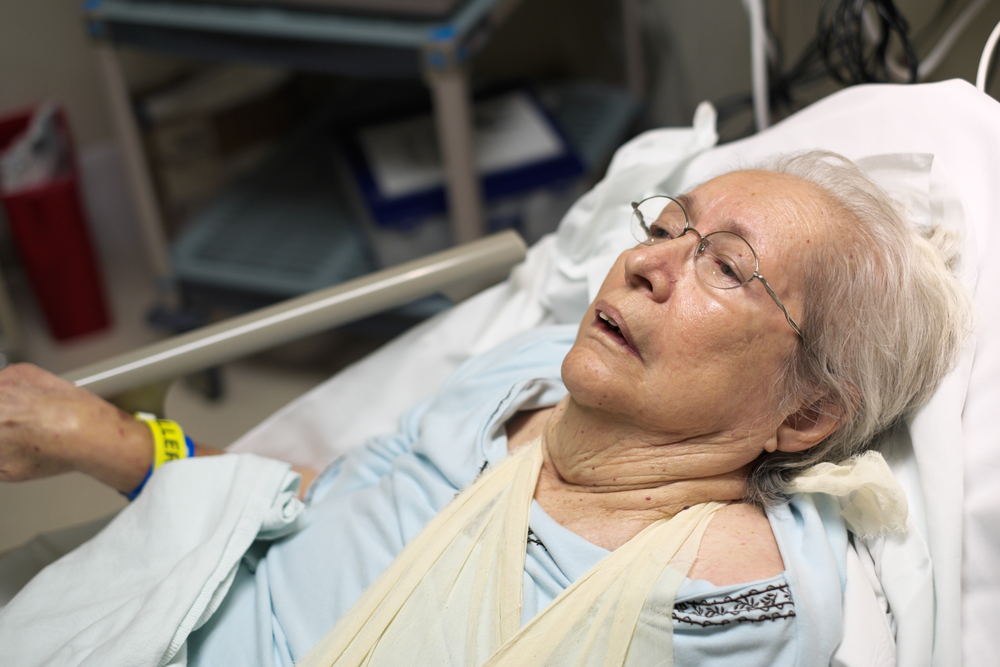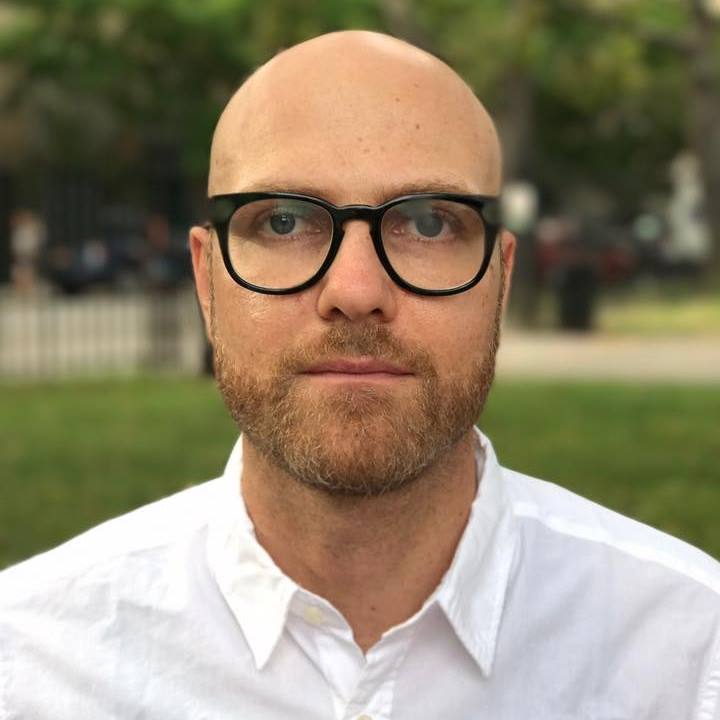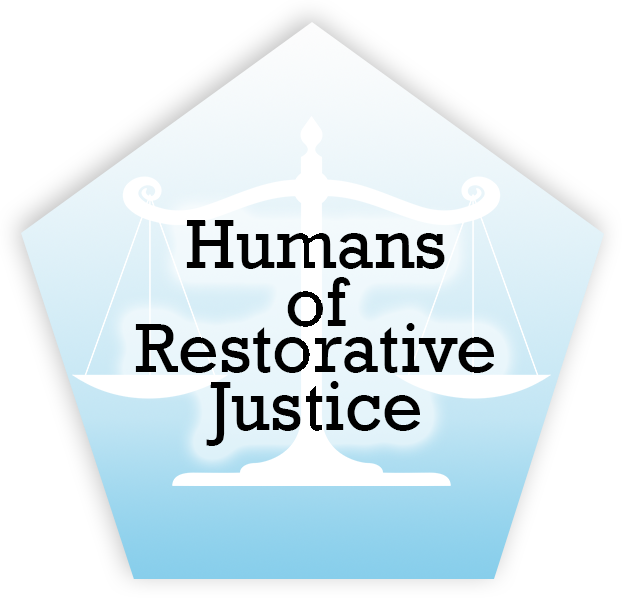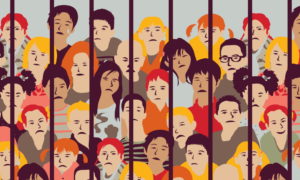
FotoluminateLLC/Shutterstock
.
Humans of Restorative Justice (HORJ) stories highlight the incredible individuals working to build and restore strong relationships in their communities. They are written and edited by David Levine based on interviews with real-world practitioners. This one is with Michael of New York.
Two days ago, in Ms. T’s first-period 11th-grade classroom, there had been an incident between two female students, Shannon and Aida. Ms. T felt the matter could be resolved in a circle mediation, which she asked me to facilitate. Two days later, both girls were in school so we quickly jumped on the opportunity, getting another teacher to cover the class so we could all meet in a private room. In addition to Ms. T, myself and the two students, we had also invited Andy, the school social worker/counselor, because he had a good working relationship with both girls.
The five of us sat around a small table. Shannon began, “Well, I was coming to English and I was late. I’ll admit I haven’t been to that class much this year. I’ve got some stuff going on at home. I just knew that when I walked in to class someone was gonna say something smart or give me a look. And sure enough, this girl right here had to make some slick comment like ‘Is she even in this class?’ And then her smart-ass friends had to laugh so I got tight [upset] and we exchanged words. That’s it.”
“OK,” I said, “thank you for your perspective. Aida, is that how you saw things happen?”

David Levine
“Look, all I know is that Shannon came into the class mad late, so I turned around like everyone else to see who it was. I haven’t seen her in my class before so yeah, without thinking on it, I did say that comment. I didn’t mean it to be a diss, and I didn’t know kids were gonna laugh at it. But then she says something about me wiping the look off my ugly face and no one talks to me like that, especially not in front of all those people, so I fired back.”
“Thank you for sharing, Aida. I can see Shannon nodding and saying yes she agrees with what you said. Aida, now that we are here, is there anything you can take responsibility for in that exchange?
“Yeah, I really didn’t need to make that comment. I was surprised to see her but I should have just kept that to myself. Especially now that I heard she’s going through something at home, she probably didn’t need any more stress from me.”
“Thank you, Aida. Shannon, is there anything you can take responsibility for now that we are here and calm?”
“Yeah, I guess I was already on edge, and I can understand that she was surprised to see me there. I’ve just been trying to get back on my school game. Anyway, I was pissed but I shouldn’t have insulted her and almost got into a fight. That didn’t help anything.”
“You girls are both such strong and wonderful students,” Ms. T added, “I hate to see you fight like that and tear each other down.”
Shannon and Aida both nodded. “We love you, Ms. T, and sorry for messing up your class like that,” offered Shannon.
I could see that the issue was adequately resolved at this point and that the mood of the circle had shifted toward something more safe and supportive. Not entirely sure why, as I had not planned to do this, I decided to add something else to this mediation. Something that would push us further into vulnerability and empathy, two aspects of restorative justice that can often be overlooked
 “You know, Ms. T has told me about how wonderful you two are, and also that you both have had struggles in your life. I really want to acknowledge the strength it takes to keep working at school despite what’s going on for you outside. So I’d like to finish this meeting with one request, that we each share one struggle we have had in our life. Something you feel comfortable sharing, and I want to be clear that nothing said here leaves this room. Can we agree to that? Good.
“You know, Ms. T has told me about how wonderful you two are, and also that you both have had struggles in your life. I really want to acknowledge the strength it takes to keep working at school despite what’s going on for you outside. So I’d like to finish this meeting with one request, that we each share one struggle we have had in our life. Something you feel comfortable sharing, and I want to be clear that nothing said here leaves this room. Can we agree to that? Good.
“I know it’s hard, so I will go first. Hmm, let’s see. Well, many years ago I was diagnosed with anxiety and depression. It got so bad that I had to get the help of a psychologist, a counselor like Andy and even go on some medication. I feel much better these days but I went through a really dark time, especially in my 20s, dealing with how badly I felt. Thank you for listening. Shannon, would you share something?”
“OK, well yeah, like I was saying, I’ve been missing a lot of school. I live with my grandma, she is the one who raised me. And she got really sick this year, it might be cancer. So I’ve had to stay home a lot and look after my younger brother and sister. If something happens to her, I just don’t know what I’m gonna do.”
“Thank you for sharing that Shannon, that sounds really scary.”
“Yeah, damn. Hearing all that, now I really feel bad that I made that comment,” Aida interjected. “I hope things get better for your grandma.”
“Thanks.”
“Andy, you’ve been a very good listener through all this, is there something you could share that you’ve been through?” I asked.
“OK, well sure,” Andy began. “I recently broke up with my boyfriend. We were living together and so yeah, that was really hard.”
I didn’t know what to expect from the other adults in the circle and I really appreciated the personal share from Andy. I wasn’t sure if the two girls were aware that he was gay, but either way he showed vulnerability with his share and the two girls said some words of encouragement to him.
“Aida, it’s your turn, if you would share something with us,” I requested.
“OK, yeah, well. One thing I struggled with was not knowing my father. He left my mom and I when I was just a baby. Sometimes when I think about it I get really angry, like I wish he was there for me all these years, so I try not to think on it that much.”
“We hear you. Those sound like really tough thoughts to have, and we thank you for sharing. Last but not least, Ms. T, would you mind sharing with the group?”
“Well, as you girls know I grew up right around here. And you also know how important it is in New York, when you’re young, to have the latest sneakers and look fresh in school. But my family was really poor. It was just my mom taking care of me and my brothers. So every year I would get one pair of white [Nike] Air Force 1s, and they had to last me the whole year. I would …”
At this point Ms. T got emotional and began wiping tears from her eyes. Aida put a comforting hand on her shoulder.
“Sorry, I’m OK,” Ms. T. continued. “I would use a toothbrush to clean the shoes all the time, hoping that none of the other kids would notice that I didn’t get any new shoes. So they wouldn’t know how poor my family was.”
Now Shannon also put a hand on Ms. T’s shoulder.
“Thank you. I want to acknowledge the powerful sharing you all just did here in this circle. A reminder not to jump so quickly into anger with other people when we never really know what’s going on in their lives that might be affecting them. Shannon and Aida, I wish you the best in your classes this semester, you are lucky to have such a caring teacher as Ms. T wanting the best for you. All of us at this table are here if you ever need to talk to someone about any struggles you are having.”
Like I said, this last part of the mediation was not planned, but it just felt right for the girls to be acknowledged for the difficulties they have been experiencing and the strength they were showing to persevere. I think it was also great for them to hear that Ms. T, a young teacher from their own neighborhood, had experienced struggles as well, and was still able to achieve a college degree and a successful career.
This is the type of work that I hope will strengthen the relationships between students and staff at our school. The type that would not have occurred if the girls were simply written up for detention, where they would sit in silence without the opportunity for this type of authentic and compassionate dialogue. Vulnerability is rarely valued with the young people in our school, but if anything, the exercise allowed the girls’ true strength to shine in that circle.
David Levine has worked as an educator at public high schools in Brooklyn and Seattle, and as a restorative justice dean in the Bronx. He is currently a course facilitator at the National Center for Restorative Justice, an organization that provides training for those looking to change their relationship to conflict. Contact him at d.levine@nationalcenterforrestorativejustice.com.































